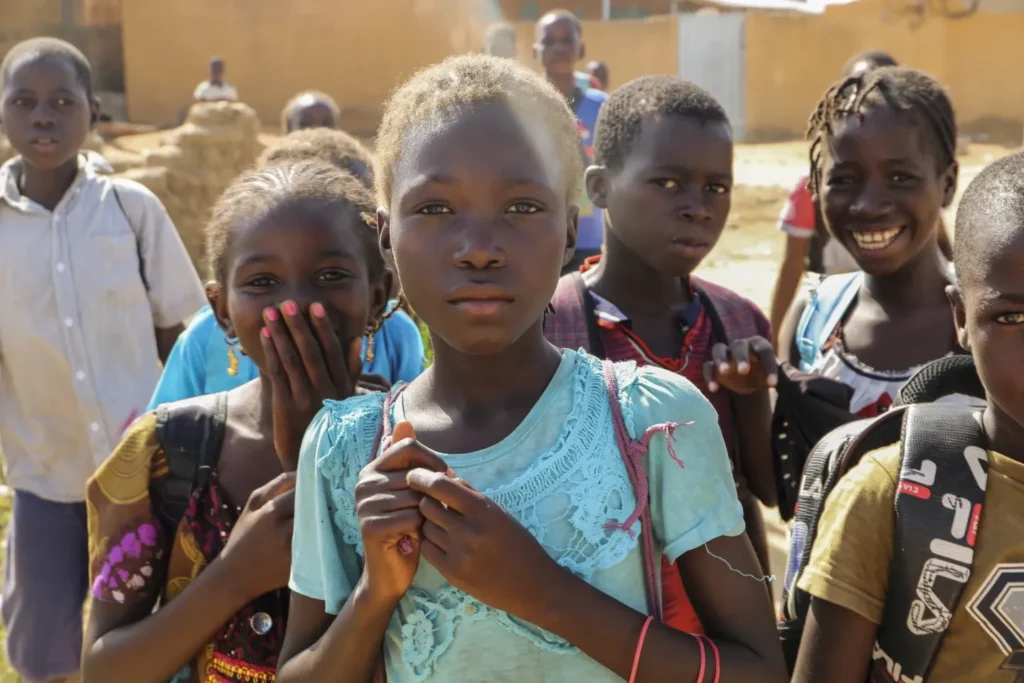When armed men stormed Safi’s village in northern Burkina Faso, she hid with her four children, praying for their lives. The gunmen found them but spared them, leaving them to grapple with the profound guilt of surviving the massacre that claimed her husband and other relatives.
Safi, whose last name is withheld for security reasons, is one of the 2 million people displaced by escalating violence between Islamic extremists and security forces in Burkina Faso. An estimated 60% of the displaced population are children, many of whom are deeply traumatized, yet mental health services remain scarce, often overlooking the needs of the youngest victims.
“People often think that the children have seen nothing, nothing has happened to them, it’s fine,” said Rudy Lukamba, health coordinator for the International Committee of the Red Cross (ICRC) in Burkina Faso. Lukamba leads a program aimed at identifying and treating traumatized children, relying heavily on mothers to detect early signs in kids as young as three or four. Successful outcomes in treatment are more likely when children have a parental figure to support them, he noted.
Mass killings have become a grim routine in northern Burkina Faso, where fighters linked to the Islamic State group and al-Qaida clash with the army and volunteer forces. Accusations of village collaboration with enemies often result in brutal retaliations. According to the Armed Conflict Location and Event Data Project, over 20,000 people have been killed since the conflict began a decade ago.
Mental health services in Burkina Faso are severely limited, often reserved for only the most severe cases. A 2023 U.N. survey revealed that the country, with a population exceeding 20 million, has only 103 mental health professionals, including a mere 11 psychiatrists. Community-based mental health services are expanding, now supported by hundreds of social workers and a small team of U.N. psychologists. Additionally, traditional medicine practitioners are increasingly sought for help with traumatized children.
The need for mental health support is overwhelming. Surveys conducted by the U.N. and its partners indicate that 10 out of 11 people affected by the conflict exhibit signs of trauma.
With no money and fearing further attacks, Safi embarked on a harrowing journey on foot with seven children, including her own, across the arid plains to find safety. They eventually settled in Ouahigouya, the capital of Yatenga province. There, Safi learned about post-traumatic stress disorder (PTSD) and its effects on children. Her children experienced nightmares, insomnia, and social withdrawal. Through the ICRC, Safi connected with a health worker who used home visits and art therapy to help the children express and confront their fears.
Traditional medicine practitioners also play a crucial role in addressing trauma. Rasmane Rouamba, one such practitioner, treats about five children a month, tailoring his approach to the specific trauma experienced.
The conflict has also severely impacted education and healthcare. According to the U.N. children’s agency, school closures have deprived nearly 850,000 children of education, while the shutdown of hundreds of health facilities has left 3.6 million people without access to care.
Burkina Faso’s government has struggled to restore security. Military leader Capt. Ibrahim Traoré seized power in 2022, capitalizing on public frustration over ongoing attacks. Traoré is expected to stay in power for another five years, delaying the promised democratic transition. Currently, about half of Burkina Faso’s territory remains outside government control, civic freedoms are eroded, and journalists face expulsion. The country has also distanced itself from regional and Western allies, severing military ties with former colonial ruler France and turning to Russia for security support.
Adrift in her new community, Safi plans to stay for now, as she has no other options. “There’s a perfect harmony in the community, and they have become like family,” she said.
The ongoing conflict in Burkina Faso continues to displace thousands, with children bearing the brunt of the trauma. As efforts to provide mental health support grow, the stories of survivors like Safi highlight the urgent need for comprehensive care and stability in the region.
https://www.africanexponent.com/the-tales-of-burkina-fasos-displaced-children/


